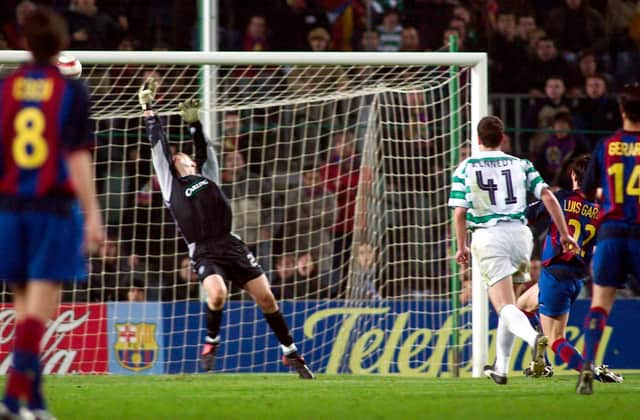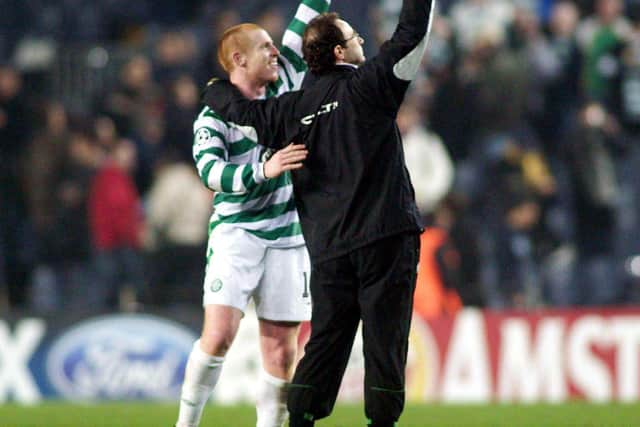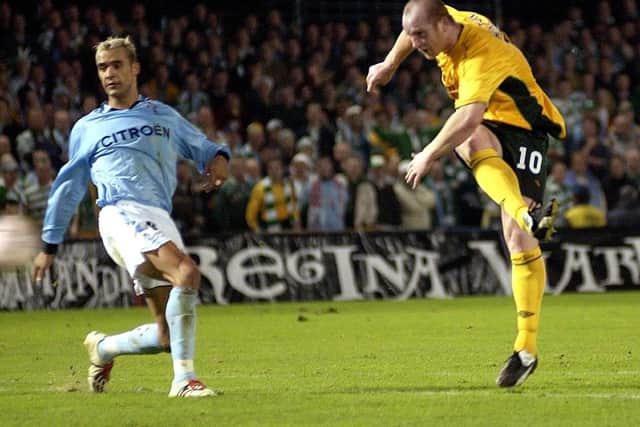The Remarkable Celtic 59-year record that reveals gain in Spain up for grabs to Ange Postecoglou


Beyond the 2003 UEFA Cup final loss to Porto in the city, there is a wider context to the club’s return to Spain, though. It offers the Australian the opportunity to make a mark as has no Parkhead predecessor across Celtic’s 59 years of cross-border competition. An era that began, appositely, on Spanish soil with a Fairs Cup first round, first leg tie lost 4-2 to Valencia in September 1963.
Postecoglou has eagerly anticipated the Europa League Group G opener away to Real Betis on Thursday as an opportunity to “create more special memories that people will talk about in the future when they talk about the great European nights with this club.” A win over Manuel Pellegrini’s side would serve that ambition – and then some.
Advertisement
Hide AdAdvertisement
Hide AdStarting with that Valencia confrontation, Celtic have played no fewer than 19 competitive games in Spain – a figure far greater than for European sorties to any other country. There is one common denominator when it comes to all these: not one has brought a Celtic win. Following the Roman conquest by Neil Lennon’s team away to Lazio almost two years ago, of the major footballing nations only Spain and Germany have yet to bear witness to a game win for Celtic.


That is not to say the club haven’t enjoyed success in Spanish surrounds. They did so in March 2004. Then Martin O’Neill’s men – with defensive novices David Marshall and John Kennedy – produced a display of remarkable defiance to hold out a Barcelona in the Nou Camp. A scoreless draw progressed them to the quarter-finals of the UEFA Cup at the expense of the Catalan behemoths, beaten 1-0 in Glasgow a fortnight earlier. The following month they returned to Spain for that last eight clash, but found Villarreal too hot to handle in going down 2-0 to end their interest in the competition.
Incredibly, these proved two of five visits to Spain across a two-year spell that framed Celtic’s European renaissance effected by O’Neill. Of course, the 3-2 final defeat to Porto on May 21, 2003 is the most keenly recalled moment within that, but it was a jaunt to Galacia five months earlier that made it possible. Celtic may have lost 2-1 to Celta Vigo in the return leg of their third round UEFA Cup tie in December 2002, but the goal bagged by John Hartson was monumental. It allowed them to prevail on the away goals’ rule and bank European football in the second half of a season for the first time since 1979-80. It just so happens that campaign also had a Spanish denouement. Celtic’s first latter stage appearance in the European Cup since Jock Stein’s Lisbon Lions era, it came crashing to a halt in the Bernabeu. They dared dream after producing a stunning 2-0 success in the home leg of their quarter-final tie against Real Madrid but, with an element of controversy, the home team secured the 3-0 win they required in March 1980.
Two years later, a 2-0 loss away to Real Sociedad in the second round of the competition could not be overturned at Parkhead. Then a new Spanish foe for Celtic, Betis are now another. Meanwhile, Barcelona are the (overly?) familiar one from the Iberian peninsula, Celtic playing seven times at the Nou Camp. Barca were their second opponents from the area, two years on from the Valencia excursion. Celtic lost 3-1 to Barca in a Fairs Cup third round, first leg in November 1965 that proved too great to recover in the home return.
O’Neill pulled off another hugely unexpected Nou Camp result when the clubs’ first match-up in the Champions League group stages sent them to Catalonia in November 2004. A commendable 1-1 draw ultimately didn’t help them to avoid finishing bottom of their group. Gordon Strachan’s Celtic drew Barcelona four years later as reward for progressing to the last 16 of the Champions League for a second season running. Following a 3-2 victory for the Catalans in Glasgow, Celtic could lay a glove on their hosts in a 2-0 defeat in the Nou Camp in March 2008.


Later that year, they lost 1-0 away to Villarreal in a disappointing Champions League group campaign, and Celtic didn’t fare any better when Neil Lennon was in charge for a Europa League group encounter away to Atletico Madrid in September 2011, another 2-0 loss recorded. In September 1985, they did draw with Atletico in Madrid, in the opening leg of their first round of the Cup Winners’ Cup tie. Forced to play the return behind closed doors because of fan trouble in their controvesial loss to Rapid Vienna the previous season, though, Atletio got the job done in Glasgow.
The club’s most bitter trip to Spain was the creation of the same Madrid club: the 1974 European Cup semi-final against. An appalling display of brutality from Atletico that led to them being reduced to eight men in a goalless Celtic Park opening leg, Stein’s men were unsettled by death threats directed towards Jimmy Johnstone – the victim of so much of the Spaniards’ kickfest – before the late April return. The 2-0 defeat proved the last time they came close to replicating their 1967 success in the club game’s pre-eminent competition.
More recently, Lennon’s men ran Barcelona mighty close in losing 2-1 in the Nou Camp in late 2012, a fortnight before the fabled Celtic Park slaying of them. That gave way to being whipped 6-1 in the Catalan capital the next year, and a 7-0 horsing in the group stages five years ago for Brendan Rodgers’ eventual domestic invincibles. The Irishman’s last away game also turned out to be in Spain, a meek exit-ensuring 1-0 defeat in the last 32 of the Europa League to Valencia, five days before he departed.
A message from the Editor:
Thank you for reading this article. We're more reliant on your support than ever as the shift in consumer habits brought about by coronavirus impacts our advertisers. If you haven't already, please consider supporting our trusted, fact-checked journalism by taking out a digital subscription.
Comments
Want to join the conversation? Please or to comment on this article.